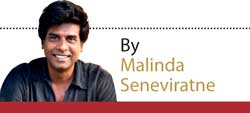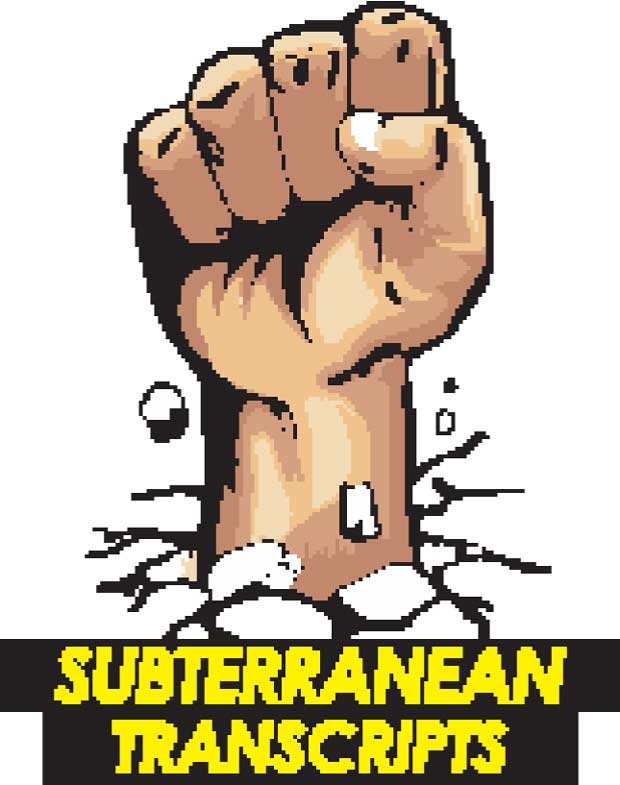Reply To:
Name - Reply Comment
Last Updated : 2024-04-16 16:07:00

The presumption of innocence until and unless proven guilty is one of the foundational and sacred principles of the judicial process. So let us not be presumptuous. However, let us state some established facts.
Nagananda Kodituwakku, aspiring Presidential Candidate 2020 and a public interest lawyer  has written to the Registrar of the Supreme Court requesting that several cases he has filed not be listed before certain judges he has mentioned by name. The cases are as follows: the abuse of National Lists (SC/Writs/05/2015), abuse of tax-free permits by MPs (SC/Contempt/03/2017), destruction of ancient Buddhist religious places of worship in the Northern Province (SC/FR/309/2015), judicial corruption (SC/Writs/03/2016), abuse of public office to defraud government revenue by P.B. Jayasundara (SC/Writs/04/2015), and a ruling against lawyer/activist Nagananda Kodituwakku (SC/Rules/01/2016).
has written to the Registrar of the Supreme Court requesting that several cases he has filed not be listed before certain judges he has mentioned by name. The cases are as follows: the abuse of National Lists (SC/Writs/05/2015), abuse of tax-free permits by MPs (SC/Contempt/03/2017), destruction of ancient Buddhist religious places of worship in the Northern Province (SC/FR/309/2015), judicial corruption (SC/Writs/03/2016), abuse of public office to defraud government revenue by P.B. Jayasundara (SC/Writs/04/2015), and a ruling against lawyer/activist Nagananda Kodituwakku (SC/Rules/01/2016).
As mentioned above, let us not be presumptuous; the accused have not been found guilty. What is interesting is the issue that has prompted litigation, in short failure to fulfil constitutional obligation with respect to the (alleged, as of now) illegality of the 14th Amendment, that piece of legislation allowing those rejected at the polls to be accommodated in Parliament through ‘National Lists’. The relevant judges, Nagananda charges, refused to offer determination and instead passed it on to someone else.
For the record, the passage of the 14th Amendment in 1988 (just before the United National Party (UNP) lost its two-thirds majority perniciously obtained through the anti-democratic measure of the 1982 referendum), violated established procedure. The then President J.R. Jayewardena submitted a note to the then Chief Justice requesting a determination on constitutionality. The Amendment was not included in the Order Paper of Parliament. The people were not given sufficient time to assess its worth and if thought fit to make submissions to the Supreme Court on the issue of legality. In fact this particular draft was used to throw out another draft on the same subject that had actually adhered to established procedure.

It’s obviously a can of worms, but one which has now been opened thanks to a case filed by DEW Gunasekara (possibly inadvertently, according to Rajan Philips) after he was denied a slot in the SLFP’s national list in August 2015, and thanks to the untiring efforts of his lawyer, Kodituwakku. What it affirms (that’s a soft word which does not mean ‘proves’) is the widely-held notion that the judiciary either functions under the control of the executive or is given to betraying the judicial power of the people that it is mandated to exercise purely on trust. If it’s a matter of not wanting to incur the wrath of the executive, then we are poor indeed as a citizenry and our sovereignty is not worth the ink used to write the word.
This particular case, then, involves all three organs of the state, the executive, legislative and judicial. It forces us to wonder why the recent enthusiasm shown by the Government for constitutional reform has tiptoed around the issue of the National List, the illegality of the 14th Amendment and making room for people who have failed to win the trust of the people to legally represent them in Parliament.
It is in this context that constitutional reform proposed by Kodituwakku need to be discussed. He has made several recommendations which he believes would make for a corruption-free institutional arrangement where the sovereign rights of the people are upheld at every turn, especially in the courts.
Among the measures recommended are the following: Ensuring that judicial power of the people shall be exercised by the judiciary, the introduction of the right to judicial review, removal of immunity afforded to the executive president, the removal of the ‘Urgent Bill’ provision, extension of the citizens’ right to reference fundamental rights alleged to have been infringed to a period of six months, the introduction of accountability criteria for the judiciary, prohibition of any judge to take up any position in either the public or private sector after retirement, restricting promotions in the entire judicial service to career judges on the basis of merit and merit alone, introduction of a case management system with mandatory compliance provisions guaranteeing the speedy disposal of cases, removal of the unlawful court vacation system, and introduction of public interest disclosure law.
In addition, Kodituwakku has called for the number of MPs to be limited to 125 and the size of cabinet to be limited to 12. Citizens would also be empowered to recall MPs for abuse of office. He has recommended sweeping changes to the political party system and the process of elections as well radical reform pertaining to labour rights.
What is interesting is that for all the talk of democratization, there has been very little interest on any of these important issues from the lords and ladies of good governance, be they NGO activists, academics or political commentators. One hopes that given the courage shown by Kodituwakku in, a) taking up these issues in court; b) putting his entire career in jeopardy simply because he has proven to be an irritant in court thanks to his forthrightness and c) bringing it all into the public domain by announcing his candidacy, all these forces will now support the call for constitutional reform along the lines he has detailed. Kodituwakku has humbly stated that it is not about himself and we have no reason to believe otherwise. The reforms proposed are not only pro-citizen but they are aimed at correcting fundamental flaws in the entire institutional arrangement that have been neglected for decades, errors that have spawned other errors and rendered the entire edifice untenable.
It is not the hour of Nagananda Kodituwakku and he will be the first to say it. It is the hour of the citizen. Your time. My time. Our moment. Let us not fail to seize the opportunity.
Malinda Seneviratne is a freelance writer. Email: malindasenevi@gmail.com Blog: www.malindawords.
blogspot.com

Add comment
Comments will be edited (grammar, spelling and slang) and authorized at the discretion of Daily Mirror online. The website also has the right not to publish selected comments.
Reply To:
Name - Reply Comment
On March 26, a couple arriving from Thailand was arrested with 88 live animal
According to villagers from Naula-Moragolla out of 105 families 80 can afford
Is the situation in Sri Lanka so grim that locals harbour hope that they coul
A recent post on social media revealed that three purple-faced langurs near t
09 Apr 2024 - 1 - 1171

10 Apr 2024
09 Apr 2024